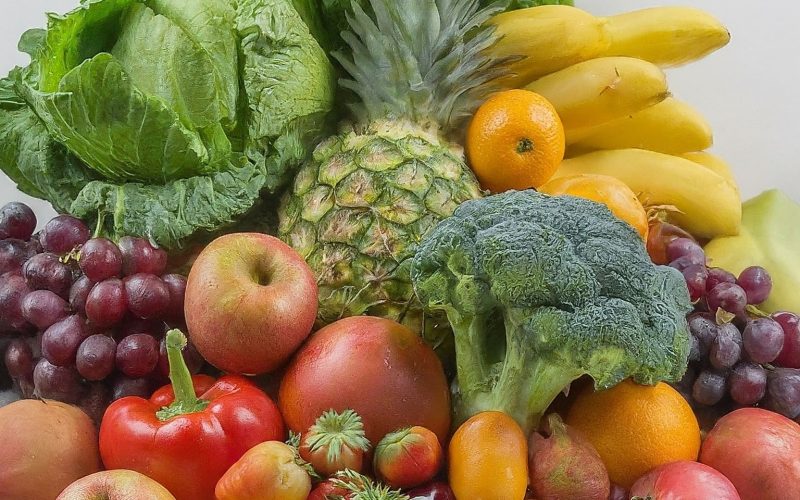Informative Table: Nutritional Benefits of Plant-Based Diets
| Nutrient | Plant-Based Sources | Benefits |
| Fiber | Whole grains, legumes, fruits, vegetables | Improved digestion, weight management, cholesterol control |
| Protein | Lentils, chickpeas, tofu, tempeh, quinoa | Builds and repairs tissues, supports muscle growth |
| Omega-3 Fatty Acids | Chia seeds, flaxseeds, walnuts | Heart health, brain function, inflammation reduction |
| Vitamins and Minerals | Various fruits, vegetables, whole grains | Immune function, bone health, energy production |
The Power of Plants: Unlocking Nature’s Nutritional Goldmine
Plants are the cornerstone of a healthy and sustainable diet. They are bursting with a vibrant array of nutrients, fiber, and powerful antioxidants that are essential for optimal health.
- Fiber Powerhouse: Plant-based foods are champions of fiber, a crucial nutrient for gut health, digestion, and weight management. Fiber keeps you feeling fuller for longer, promoting satiety and aiding in weight control. It also helps regulate blood sugar levels and reduces your risk of heart disease.
- Nutrient Rich: Fruits, vegetables, legumes, whole grains, and nuts are packed with a diverse range of vitamins and minerals. These micronutrients are vital for a strong immune system, healthy bones, and efficient metabolism.
- Antioxidant Advantage: Plants are rich in antioxidants, which combat harmful free radicals in the body. Free radicals contribute to cellular damage and are linked to chronic diseases. The antioxidants in plant-based foods help protect your cells and reduce your risk of chronic illnesses.
Nurturing Your Body: Essential Nutrients from Plant-Based Sources
A well-planned plant-based diet can provide all the essential nutrients your body needs to thrive. Here’s a breakdown of some key nutrients and their abundant plant-based sources:
- Protein: Contrary to popular belief, you can get plenty of protein from plant-based sources. Legumes like lentils, chickpeas, and beans are protein powerhouses. Tofu, tempeh, seitan, quinoa, and nuts and seeds are also excellent sources of plant-based protein.
- Iron: Leafy green vegetables, beans, lentils, fortified cereals, and nuts and seeds are all iron-rich plant-based options. To enhance iron absorption, consume these foods with vitamin C-rich fruits and vegetables like citrus fruits, bell peppers, and tomatoes.
- Calcium: While dairy products are often associated with calcium, many plant-based foods are abundant in calcium. Calcium-rich plant sources include dark leafy greens (collard greens, kale), fortified plant-based milks (almond milk, soy milk), tofu processed with calcium sulfate, and calcium-set tofu.
- Vitamin D: Sunlight is the primary source of vitamin D, but some plant-based foods can also contribute to your intake. Look for vitamin D-fortified plant-based milks and cereals. Mushrooms that have been exposed to ultraviolet light are another source of vitamin D.
Note: If you are concerned about meeting your nutrient needs on a plant-based diet, consulting with a registered dietitian can be beneficial. They can create a personalized plan to ensure you are getting all the essential nutrients your body requires.
Chronic Disease Prevention: Shield Yourself with Plant Power
Plant-based diets are not only good for your overall health and well-being, but they can also be a powerful shield against chronic diseases. Here’s how:
- Heart Disease: Plant-based diets are typically lower in saturated fat and cholesterol, which are major contributors to heart disease. They are also rich in fiber, which helps lower LDL (“bad”) cholesterol and promotes heart health.
- Type 2 Diabetes: Plant-based foods tend to have a lower glycemic index, meaning they cause a slower rise in blood sugar levels. This can be beneficial for managing type 2 diabetes and reducing your risk of developing it.
- Certain Cancers: Studies suggest that a diet rich in fruits, vegetables, and whole grains may be linked to a reduced risk of certain cancers, such as colon cancer.
- Obesity: Plant-based diets are naturally lower in calories and fat than diets high in animal products. This can be helpful for maintaining a healthy weight and reducing your risk of obesity.

Sustainable Living: A Greener Plate for a Healthier Planet
Choosing a plant-based diet is not just about personal health; it’s also a conscious decision for a healthier planet. Here’s how plant-based living benefits the environment:
- Reduced Greenhouse Gas Emissions: Animal agriculture is a major contributor to greenhouse gas emissions. By opting for a plant-based diet, you’re helping to reduce your carbon footprint and combat climate change.
- Land and Water Conservation: Raising animals for food requires significant amounts of land and water resources. Plant-based protein sources generally require fewer resources to produce, making them a more sustainable choice.
- Biodiversity Protection: Animal agriculture can contribute to habitat destruction and biodiversity loss. Choosing a plant-based diet helps protect our planet’s ecosystems and the incredible variety of life they support.
Delicious and Diverse: Busting Plant-Based Diet Myths
There are many misconceptions about plant-based diets. Let’s debunk some common myths:
- Myth 1: Plant-based diets are boring and restrictive.
- Reality: With a vast array of plant-based ingredients available, meal planning can be exciting and creative. From vibrant salads and hearty bowls to flavorful stir-fries and comforting curries, the possibilities are endless.
- Myth 2: You can’t get enough protein from plants.
- Reality: As discussed earlier, there are plenty of plant-based protein sources like lentils, chickpeas, tofu, tempeh, and quinoa. By combining different plant-based proteins, you can easily meet your protein needs.
- Myth 3: Plant-based diets are expensive.
- Reality: While some plant-based alternatives may be pricier, many plant-based staples like beans, rice, and vegetables are affordable. By planning your meals and shopping strategically, you can create delicious and nutritious plant-based meals on a budget.
Easy Steps to a Plant-Based Transition: Your Personalized Guide
Transitioning to a plant-based diet doesn’t have to be overwhelming. Here are some tips to help you get started:
- Start Gradually: Incorporate more plant-based meals into your diet over time. You don’t have to go completely vegan or vegetarian overnight.
- Explore Plant-Based Alternatives: Experiment with plant-based substitutes for your favorite animal-based products. There are plenty of delicious options available.
- Learn New Recipes: Discover new and exciting plant-based recipes to expand your culinary horizons.
- Meal Planning: Planning your meals in advance can help you stay on track and ensure you’re getting a variety of nutrients.
- Seek Support: Join online communities or find a plant-based support group to connect with like-minded individuals.
Creating a Plant-Based Pantry: Essential Ingredients
Building a well-stocked plant-based pantry is key to making delicious and convenient meals. Here are some essential ingredients to get you started:
- Legumes: Lentils, chickpeas, black beans, kidney beans, pinto beans
- Whole Grains: Brown rice, quinoa, oats, whole-wheat pasta
- Nuts and Seeds: Almonds, chia seeds, flaxseeds, walnuts
- Plant-Based Milk: Almond milk, soy milk, oat milk
- Tofu and Tempeh: Versatile protein sources
- Spices and Herbs: A variety of flavors to enhance your dishes
Comparative Table: Plant-Based vs. Traditional Diets
| Factor | Plant-Based Diet | Traditional Diet |
| Environmental Impact | Lower carbon footprint | Higher carbon footprint |
| Health Benefits | Reduced risk of chronic diseases | Increased risk of heart disease, diabetes, obesity |
| Nutrient Density | High in fiber, vitamins, minerals | Lower in fiber, higher in saturated fat |
Conclusion
- Embracing a plant-based diet is a transformative journey that offers numerous benefits for both your health and the planet. By making conscious choices and exploring the diverse world of plant-based foods, you can nourish your body, protect the environment, and experience a fulfilling and satisfying eating experience.
- Remember, every small step counts. Whether you choose to eliminate animal products entirely or gradually incorporate more plant-based meals into your diet, you’re contributing to a healthier and more sustainable future. So, why not embark on this exciting adventure and discover the incredible potential of a plant-based lifestyle?










